Joanne Shaw Taylor: “Blues doesn’t have to be a 12-bar shuffle. So long as you sing it with a certain attitude, or play it with a certain feel, it is blues “
How the British blues-rock sensation got her mojo back on an album of classic covers recorded with Joe Bonamassa and Josh Smith
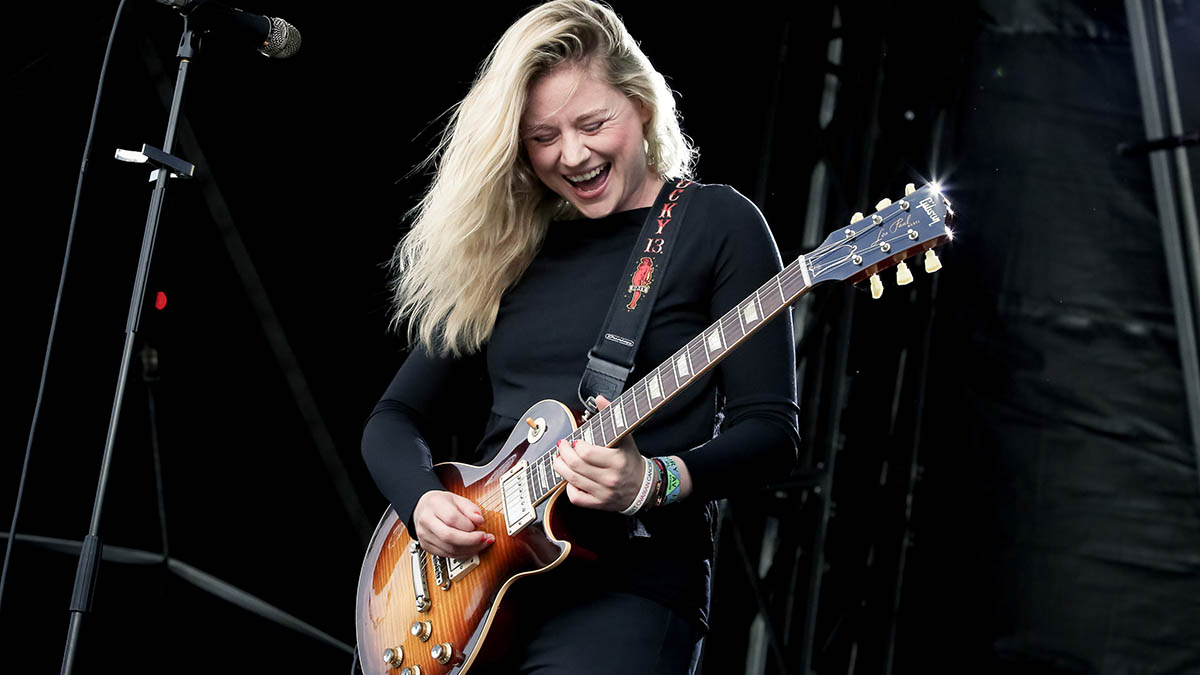
Joanne Shaw Taylor was already planning to lockdown before anyone else. The British blues guitarist and singer-songwriter had been touring relentlessly and was feeling the pinch. Playing guitar stopped being fun.
Her label stepped in, suggesting a six-month circuit breaker for 2021. Bringing this shutdown forward a few months to accommodate the novel coronavirus didn’t make much difference. Either way, the downtime got get her back in the game. The question was: what do do next?
Raised near Solihull in the West Midlands, now residing in Detroit, Michigan, Taylor has been inextricably linked with the blues since she first picked up an electric guitar, and yet she had never recorded a 100 per cent blues album. Perhaps her much-anticipated follow-up to 2019’s Reckless Heart would be it.
Titled The Blues Album, and produced by her good friend, the blues superstar Joe Bonamassa with Josh Smith, that seems too on-the-nose to be anything other than her pure blues album. But as Taylor explains, approaching blues as a crossover artist, she has a wider appreciation of what counts as blues.
“I consider Aretha or Tina Turner in the early days – I know they are considered RnB – as blues singers,” she says. The key to being blues is how you perform the track.
On The Blues Album, Taylor has some doozies. There are deep cuts from the likes of Magic Sam, Little Richard, Albert King, Aretha Franklin and Little Milton. Throughout, Bonamassa plays rhythm guitar, sharing a lead on Don’t Go Away Mad. But maybe his biggest influence on the record is the foregrounding of Taylor’s vocals.
We often discuss Taylor in the context of her guitar playing, and the tones she wrings out of Junior, her number one guitar, a modded ’66 Esquire. Yet on this record, her voice is everything. “It is really hard to sell a good blues song unless you are singing it well,” she says. “Because they are such heartfelt lyrics. This is what I meant when saying my understanding of blues is a lot broader than other people’s.”
Want all the hottest music and gear news, reviews, deals, features and more, direct to your inbox? Sign up here.
Recorded at Ocean Way Studios in Nashville, Tennessee, and cut as live as possible, The Blues Album kind of feels like a live set. The Paw Patrol soundtrack was getting cut in the next room. The sessions were fun. Taylor even uses the word easy, and here she tells MusicRadar why...
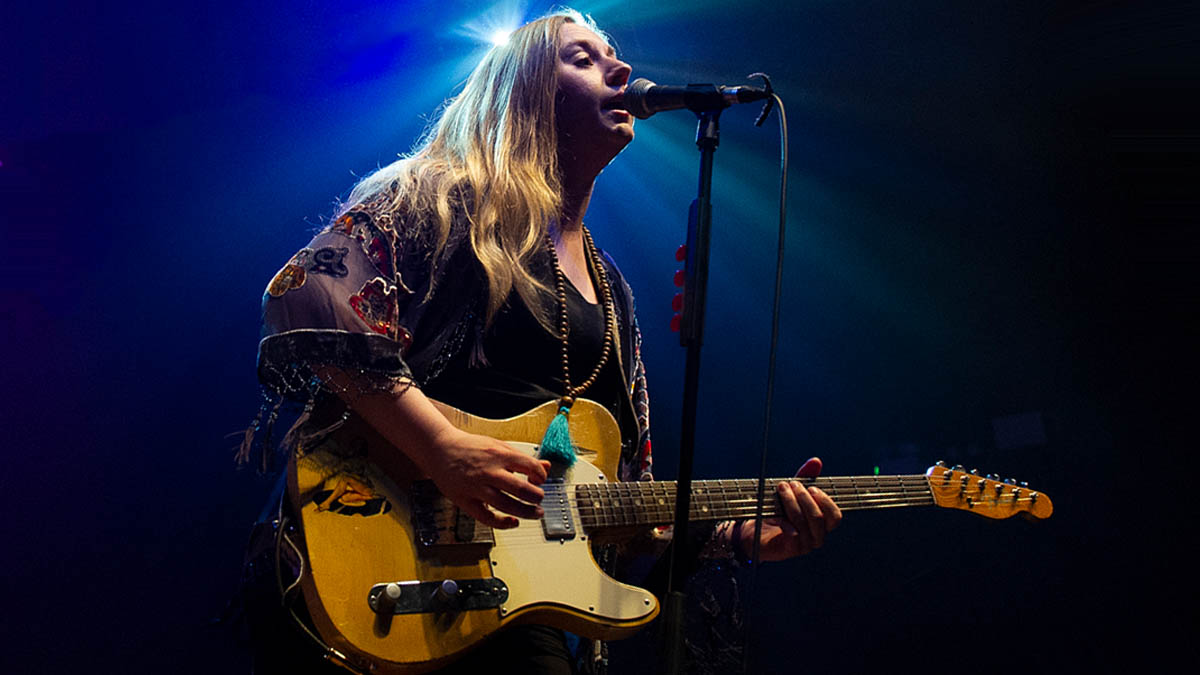
You moved to Detroit, which has quite a similar working class, industrial culture to where you were brought up, but it’s very much a music city, too. Has that move that fed into your music at all?
“Yeah, it’s kind of hard to tell, because I think stuff just seeps in without you knowing, but I am sure that i would definitely be a different artist if it wasn’t for being here, and amount of different music it has opened my eyes to. I think there is sort of a mentality in Detroit, because it is such a hard town.
“We call it the Detroit Hustle because people are used to not having anything in life, and I think when you have grown up with that mentality that you have to take everything for yourself it gives you a certain work ethic and persistence, so I think that has definitely had an impact on me. Yeah, I think I am a different artist than if I had stayed in Solihull. [Laughs]”
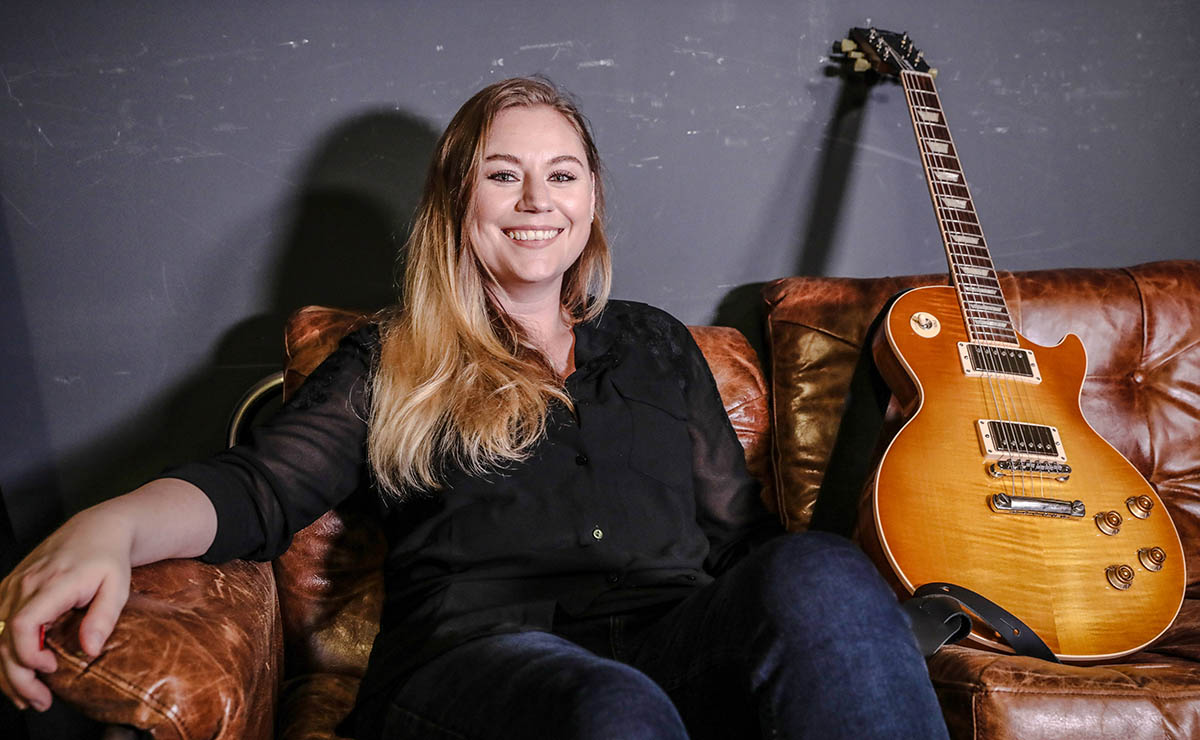
You did, however, record this album in Nashville. It is the most quintessentially blues album that you’ve recorded.
“I have always wanted to do a blues album, and I knew it was going to be covers because – as you said – this is more of a blues album than I have ever done and I can’t write blues songs. I have just never been very good at that. I am more of a rock/blues/soul crossover, so I knew that if I ever did a proper blues album I would want to do a covers album.
I wanted to have some fun so why not make it even more fun and have Joe involved? It was quite a selfish album, really! It was one for me more than anything
“The thinking going into it was, well it was because of Covid, and being stalled with a UK tour in March [2020] and not really knowing what was going on because we were on a cruise ship for five days with no wi-fi or anything, and then you are locked on a tour bus, which is a very isolated bubble that you are living in. You weren’t aware of rumours that something like this was coming.
“That was a surprise when we got home. I must say that my label, Sony, who are absolutely brilliant and deal a lot with musicians and mental health, I think they noticed that I was pretty burnt out after 13 years on the road.“
“There had been a lot of behind the scenes stuff, mismanagement that caused extra stress, and they said to me that in 2021 they wanted me to take six months and hit the reset button. But obviously that was forced upon me with Covid, so I took three months off, didn’t do anything, didn’t touch a guitar, didn’t write, just enjoyed being home and having a normal life.
If you look at the mental health pyramids, they suggest that routine and structure are the best things for mental health. And financial stability. Being a professional musician is none of those things
“My mindset going into this was, well, I always wanted to do this album, I’m well rested, my voice is well rested, and more importantly I was in a good headspace and just wanted to get back to enjoying music and not having it be part of my job that was quite stressful at the time.
“And that influenced getting Joe in because he is one of my best friends. I had been talking to him about this album concept, I was really looking forward to it, I wanted to have some fun so why not make it even more fun and have Joe involved? It was quite a selfish album, really! [Laughs] It was one for me more than anything.”
Sometimes you have to do that. It really is good to hear that the label was supportive. Like you say, it can be a 24/7 grind, and the relationship with the instrument almost becomes adversarial.
“There are a lot of factors. Firstly, touring is not a normal way to live. If you look at the mental health pyramids, they suggest that routine and structure are the best things for mental health. And financial stability. Being a professional musician is none of those things. [Laughs] You are kind of screwed from the get-go, when you don’t see your family for months at a time, and money is up and down.
It felt like I was hanging out with my two big brothers... It was the perfect scenario
“Sony were particularly great because I think they partnered with a charity. And, as you say, when your job is what you love, there was a point where every time I went to play a guitar I was just getting stressed about the set coming up, what bands are on it, that I have got to play all these shows and not make any money on it, I’m going to lose money… You connect that guitar with all the stress in your life, so it was nice to take a step back and separate the two, and get back to enjoying it and loving it.”
Joe Bonamassa is the perfect person to relight that fire for the guitar, too. His enthusiasm for the instrument is infectious.
“There were a lot of elements. Working with Joe, who is a best mate. Josh who I had never worked with but is a very talented guitar player in his own right, so I knew of him. And it was nice because they were slightly nearer my age.
“They are in their early to mid-40s and I am in my mid-30s, and it was the first time working with people my own age. I don’t mean to be derogatory to Jim Gaines for instance, but I am sure that Jim wouldn’t be surprised to hear that he is in his 70s and I am my 30s. I think he is quite aware of that!
“But that in itself made it fun. It felt like I was hanging out with my two big brothers who have had, maybe, 10 years more experience than me but not much really. It was the perfect scenario.”
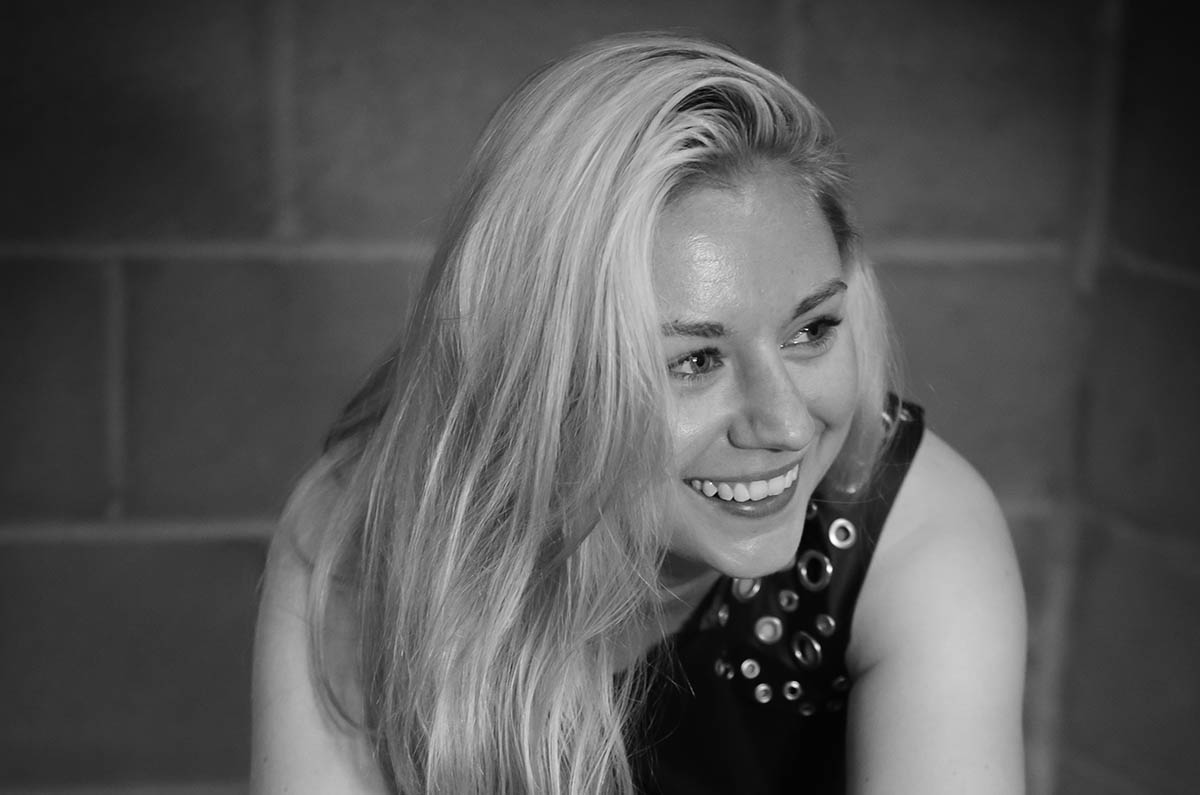
How did you pick the tracks?
“It was a bit of a mix. The one good thing with Covid was that all the musicians were in the same boat. We were all stranded off the road. And we also had more time to connect with friends. I was having a Zoom call on Friday night over a glass of wine and told Joe, ‘I think I want to do another album and I think I want it to be blues covers.’ And asked me what my ideas were and I started sending him ideas, and then he would critique them and give me suggestions, which is how he came to produce it because, in my mind, he already was.
Look at the giants in this genre, like the three Kings, Howling Wolf or Muddy Waters, or Luther Allison; they were brilliant singers. Ignoring the guitar playing, they could have been professional singers
“I had about five or six songs, blues songs I just loved – not necessarily blues songs, because I think this doesn’t fit the criteria of what people think of as blues. I have a broader sense of the blues. For me, so long as you sing it with a certain attitude or play with a certain feel it is blues. It doesn’t have to be a 12-bar shuffle.
“The Little Richard ballad [I Don't Know What You've Got] was a big one, because I always loved that song; I like the subject matter. I think we have all been in that position where we have fallen in love with someone and think, ‘Why am I in love with this person? They are an arsehole.’ Y’know!? [Laughs] And I think he approaches that subject very well.
"The rest of the songs Joe and Josh picked, and I think they predominantly choose songs that would stretch me as a singer. I think that was their main goal, certainly Joe’s.”
And that makes sense to foreground the voice. We don't talk enough about the importance of the voice. There's nothing quite like it. You speak to players like Derek Trucks and he will tell you his playing is trying to occupy a similar range to the vocals.
“Yeah, his guitar playing to me is like a singer, particularly in his phrasing. The thing is, for me, one is as equally important as the other. Look at the giants in this genre, like the three Kings, Howling Wolf or Muddy Waters, or Luther Allison; they were brilliant singers. Ignoring the guitar playing, they could have been professional singers, so I think people don’t realise how equally important it is. It is two voices that sort of come together to sell you a song.”
You make an important point, because blues does spill over into gospel and soul, and into RnB…
“It is all linked. It comes from the same place, which originally would have been oppression of African Americans. All that music came from that same sort of place. It is approached in the same way.”
And it is eternal. It is self-renewing. There isn’t a demographic on the planet who hasn’t had the blues. Something goes wrong – that’s the nature of life.
“It’s funny when people ask, ‘Why do you always sing songs about heartbreak?’ And I’ll say, ‘You do know that I am a blues singer? Show me a happy blues song!’”
What was the division of labour like in the studio. How much input do you want when you were tracking?
“Joe works in a similar way to I do, because we have both worked with Kevin Shirley and we are in the same genre. It’s the same way I work with Jim. We are all set in our ways. Okay, we’ve picked our songs, we’ll get in the studio, play it to the band, we’ll play it together and then we’ll do three takes and are probably going to use the second one.
“Obviously, Joe is in the control room, but he played on the whole album. He played rhythm guitar, and we did one duet, which surprised me because I thought he would leave that to Josh. It was quite nice to have those two guitar players with me. I didn’t have to play any rhythm guitar on this, which was so easy – and I doubt I will ever play rhythm guitar or write my own songs again because was so much more relaxing to make [Laughs].
I doubt I will ever play rhythm guitar or write my own songs again because was so much more relaxing to make
“The good thing about Josh was that he was more of the producer who was in the live room with me – he was almost like the band leader really. Having Josh there to fire questions to the band was great because I can’t read charts and both Joe and Josh can. And then also just having him with me, so that maybe if I was a bit nervous on the day with arrangements, he would cue me. That was really helpful.”
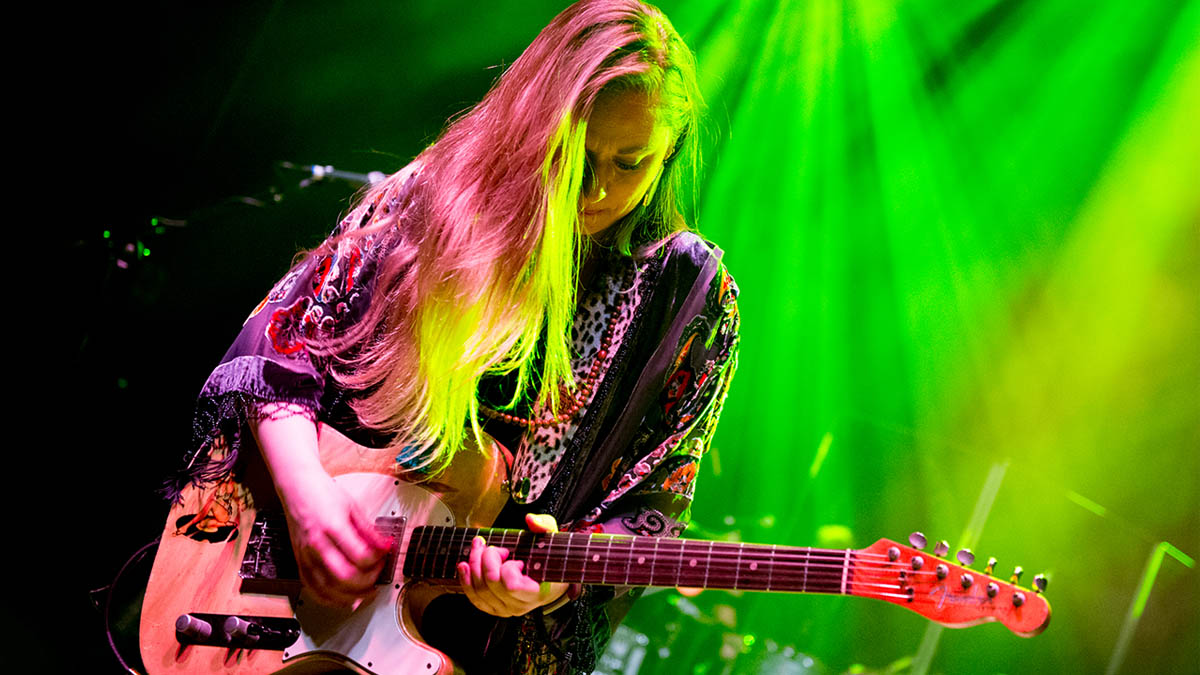
Having Joe Bonamassa on the hook to produce an album, did he bring much of his collection along and did you use anything from the Nerdville archive?
“Well, I planned to. I was driving down from Detroit to Nashville because I was trying to be safe. It was only an hour flight but I was just thinking, with Covid – and at that point in April I hadn’t been vaccinated – I didn’t want to risk getting on a plane and then derailing the whole session. I drove down and flew back.
We were both adamant that I got one tone and play it across the whole album, because that’s a bit more traditional
“I phoned Joe and said, ‘You do realise that I am not bringing anything except for one guitar?’ And he said, ‘Well that’s helpful because I don’t own any!’ The funny thing is, we used his amps, which he selected without talking to me – and I say that because I am fine with that situation. He selected a 1962 Deluxe Reverb, I believe, and one of his Dumble Overdrive amps and then blended the two.
“We were both adamant that I got one tone and play it across the whole album, because that’s a bit more traditional. In terms of guitars, I tried to play a couple, and he finally agreed with me that I just don’t play any guitar as well as I play my main guitar, Junior, and secondly, I didn’t realise how difficult his setup is on his guitars. His action’s far higher. His strings are heavier. He plays in standard. I tune down.
“I would never admit that the guitar is not a gender-neutral instrument but I will admit that Joe Bonamassa’s guitars are set up for someone with bigger hands than mine! [Laughs]”
A guitar is a funny thing, though, it is all feel. It can be like a well-worn pair of jeans and just fits you just right.
“You said it. It is a feel thing. What are you comfortable with? Go with that.”
There are lots of different styles of blues on this record. Do you have to change your style depending on what you’re covering, or what you are playing with?
“Not really. To be honest, I always sound like me. I do one thing. I think is highlighted on the duet I did with Joe, because he takes the first solo, on which the bed underneath it is a bit more open to Mark Knopfler, diatonic kinds of things, and then we kick back into the minor pentatonic blues scale for me! [Laughs] It worked perfectly! Like, ‘I am just going to play how I am going to play so you might as well work around me.’
“The only solos I had trouble with were on Let Me Down Easy, which is going to be the second single, because when it is a ballad you have so much more space to fill. I think I struggled with that one, and then eventually Joe played something for me to play, like the intro into it, and then once I had an idea of how I was getting into it it was easy peasy. Most of the time it was pretty easy but it did help – for the first time – having another guitar player there when I was doing solos.”
The record feels a little like a live blues set. Maybe it is because you used the one guitar across the whole record, or with the choice of covers and the performances.
“Oh good, because that is what we wanted. To be honest, it is a live performance, as Josh said. We were talking about production techniques and he said, ‘What production techniques? You can’t get any more live than this. We used a live band in a live studio with the same amps, everything’s been done live.’
“All you are adding is reverb and delay, and that’s how you do a blues album. You want that continuity, that it’s one guitar, one band, and that is what it is.”
Did you use any boosts or any secret pedals in the chain?
“Nothing. We went straight into the amps. And a tuner.”
And that just leaves were you position the mic if you wanted a variation on the theme.
“That was the only difference really, which mic on the amps we decided to mix in. That would be the only difference with the tone. Sometimes we used a little bit more room mic to get a bit more reverb on it, but that’s a very minor change.”
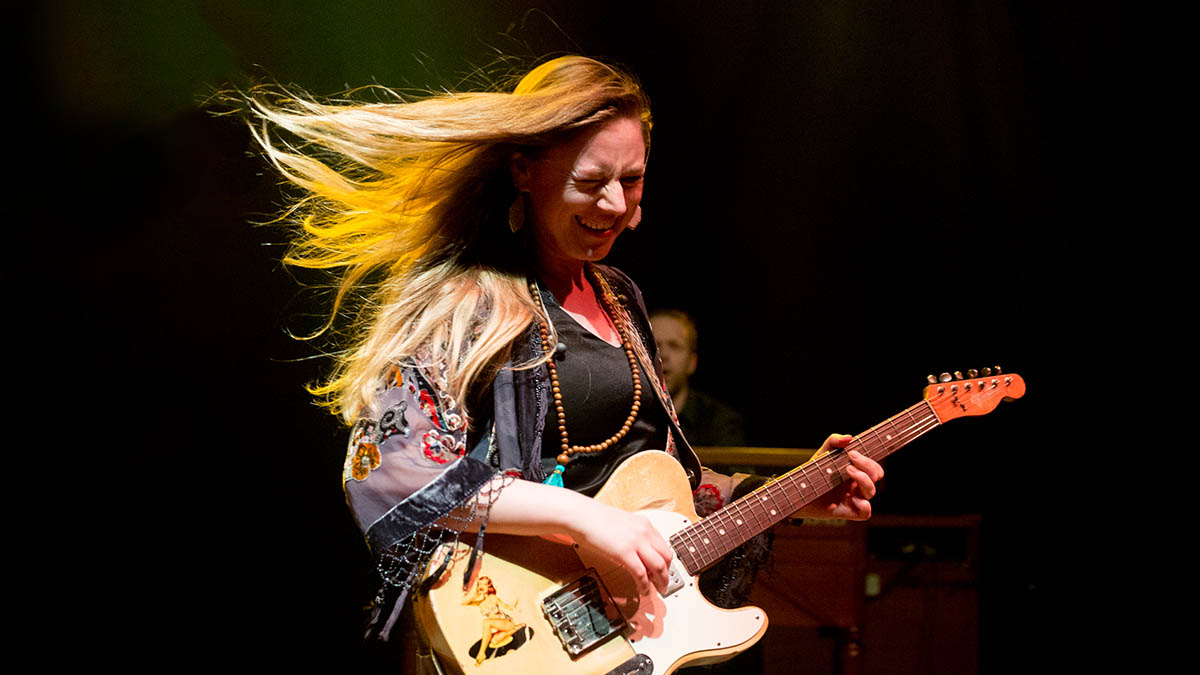
Did you have any creative epiphanies that maybe made you look at the instrument differently when you were locked down?
“Not really. I think my thing is just how much I’ve been able to get back to enjoying playing, like I was saying earlier, finding the passion again for it, because it had worn me down. I just lost myself a bit, to be honest, I forgot how much it means to me and how much I enjoy it.
“And now, it’s a fun Saturday, to me, because I get to restring my guitars and watch whatever Stevie Ray Vaughan video or BB King video and jam along and before I know it three or four hours have gone by. It’s nice to get back to that again.”
- Joanne Shaw Taylor’s The Blues Album is out now via KTBA Records .
Visit KTBA Records and Joanne Shaw Taylor for more info.
Jonathan Horsley has been writing about guitars and guitar culture since 2005, playing them since 1990, and regularly contributes to MusicRadar, Total Guitar and Guitar World. He uses Jazz III nylon picks, 10s during the week, 9s at the weekend, and shamefully still struggles with rhythm figure one of Van Halen’s Panama.
